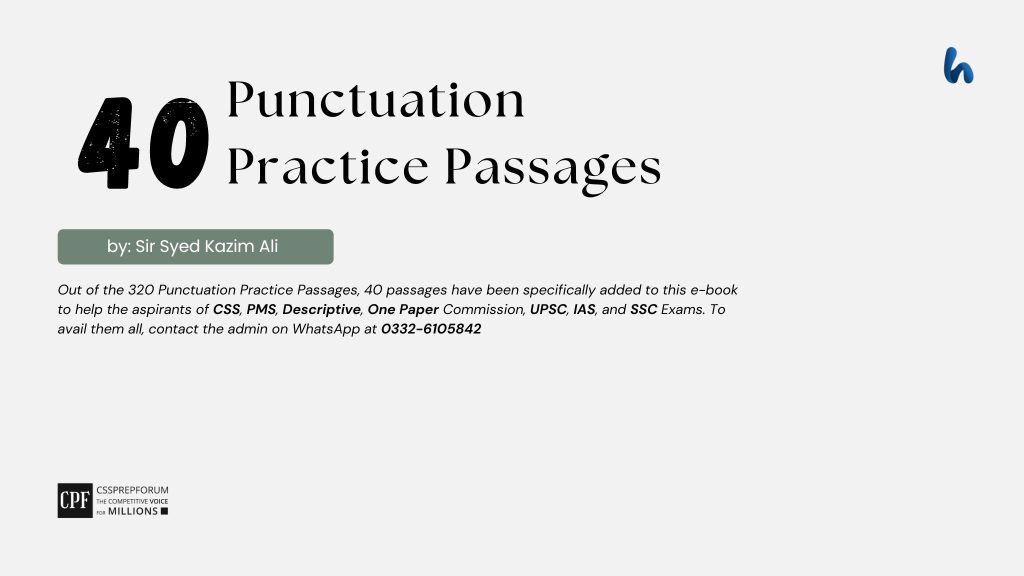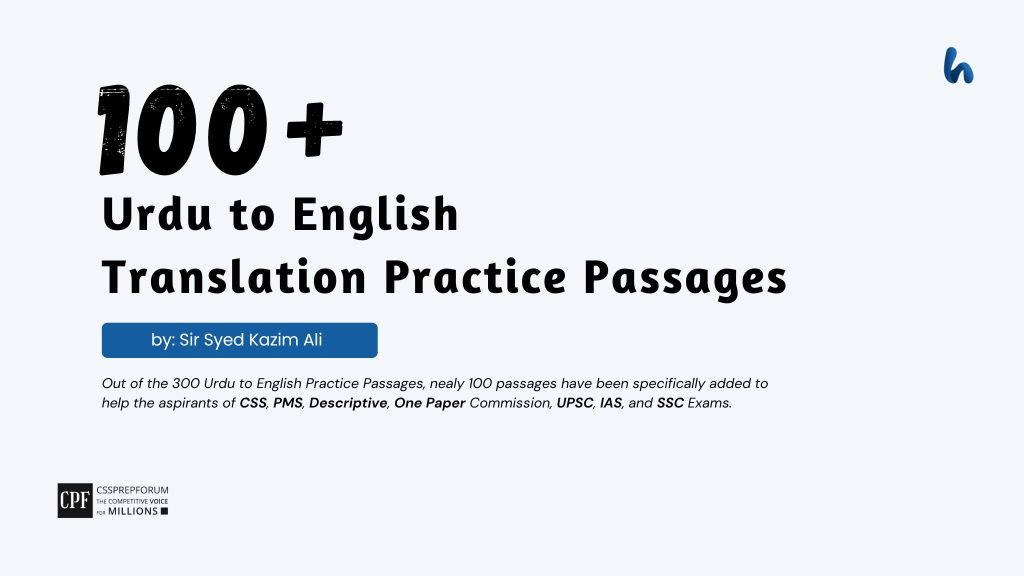This article comprehensively overviews the most important education terminologies crucial for CSS and PMS aspirants. Learning to write them will enable aspirants to navigate complex political concepts effectively.

Learning to write subject terminologies is always essential for competitive exam students, especially CSS and PMS. This practice gives aspirants a deeper understanding of complex concepts, ultimately helping them articulate their thoughts clearly. Learning to write these terms appropriately not only enhances comprehension but also equips aspirants to engage effectively with exam essays. For example, in fields like political economy, acquaintance with terms such as “globalization” and “trade barriers” helps aspirants confidently analyze and debate relevant issues. After learning these terminologies, aspirants can tackle exam questions more adeptly because they can apply these terms contextually, demonstrating their knowledge and critical thinking skills. Therefore, learning subject-specific terminology is not just about learning words or vocabulary; it’s all about improving exam scores.
I have compiled the following terminologies from various reputable sources: dictionaries, websites, books, and magazines. This compilation is intended to aid my students in enhancing their vocabulary and effectively articulating their thoughts in essays, whether for compulsory or optional subjects.

Important Education Terminologies
| Education |
| The process of learning and acquiring knowledge. |
| Learning |
| The acquisition of knowledge and skills. |
| Teaching |
| The process of imparting knowledge and skills to others. |
| Curriculum |
| The content and organization of a course of study. |
| Instruction |
| The methods and techniques used to teach students. |
| Behaviorism |
| A theory that emphasizes the role of reinforcement in learning. |
| Cognitivism |
| A theory that emphasizes the role of mental processes in learning. |
| Constructivism |
| A theory that emphasizes the role of learners actively constructing their own knowledge. |
| Humanism |
| A theory that emphasizes the importance of personal growth and self-actualization in learning. |
| Social Learning Theory |
| A theory that emphasizes the role of observation and imitation in learning. |
| School |
| An institution that provides formal education. |
| University |
| An institution that provides higher education. |
| College |
| An institution that provides undergraduate education. |
| Technical School |
| An institution that provides vocational training. |
| Homeschooling |
| Education provided at home rather than in a school. |
| Public School |
| A school funded by the government. |
| Private School |
| A school funded by private sources. |
| Charter School |
| A publicly funded school that operates independently of the local school district. |
| Online Education |
| Education delivered over the internet. |
| Learning Outcomes |
| The desired results of education. |
| Standards |
| Expectations for student achievement. |
| Grading |
| The process of assigning a numerical or letter grade to a student’s work. |
| Accreditation |
| The process of certifying that an educational institution meets certain standards. |
| Lecture |
| A method of teaching in which the instructor presents information to a group of students. |
| Discussion |
| A method of teaching in which students actively participate in the learning process. |
| Small Group Instruction |
| A method of teaching in which students work in small groups. |
| Individualized Instruction |
| A method of teaching that is tailored to the needs of individual students. |
| Cooperative Learning |
| A method of teaching in which students work together to achieve a common goal. |
| Educational Psychology |
| The study of how people learn. |
| Motivation |
| The factors that influence a person’s desire to learn. |
| Attention |
| The ability to focus on a particular stimulus. |
| Memory |
| The ability to store and retrieve information. |
| Problem-Solving |
| The ability to find solutions to problems. |
| Educational Technology |
| The use of technology to enhance teaching and learning. |
| Computers |
| Electronic devices used for processing information. |
| Software |
| Programs that control computers. |
| Internet |
| A global network of computers. |
| Distance Education |
| Education delivered over a distance, often using technology. |
| Education Policy |
| Government policies related to education. |
| Educational Reform |
| Efforts to improve the quality of education. |
| School Choice |
| The ability of parents to choose the school their children attend. |
| No Child Left Behind |
| A federal law that requires schools to meet certain standards. |
| Common Core State Standards |
| A set of academic standards for K-12 education. |
| Educational Leadership |
| The process of influencing and guiding others in educational settings. |
| School Principal |
| The administrator of a school. |
| Superintendent |
| The administrator of a school district. |
| Teacher Leadership |
| The role of teachers in shaping educational policy and practice. |
| Educational Equity |
| The goal of ensuring that all students have equal access to quality education. |
| Assessment |
| The process of measuring student learning. |
| Standardized Tests |
| Tests that are administered and scored in a uniform way. |
| Alternative Assessments |
| Assessments that are not standardized tests, such as portfolios or projects. |
| Formative Assessment |
| Assessment that is used to monitor student progress during instruction. |
| Summative Assessment |
| Assessment that is used to measure student learning at the end of a unit or course. |
| Diversity |
| The presence of a variety of people in a group. |
| Inclusion |
| The practice of ensuring that all students have equal access to education. |
| Special Education |
| Education for students with disabilities. |

| English Language Learners (ELL) |
| Students who are learning English as a second language. |
| Gifted and Talented Education |
| Education for students who are identified as gifted or talented. |
| Horace Mann |
| A pioneer in American public education. |
| Maria Montessori |
| A developer of educational methods for young children. |
| John Dewey |
| A philosopher of education who emphasized the role of experience in learning. |
| Jean Piaget |
| A psychologist who developed a theory of cognitive development. |
| Lev Vygotsky |
| A psychologist who developed a theory of sociocultural learning. |
| Personalized Learning |
| Education that is tailored to the individual needs of each student. |
| STEM Education |
| Education in science, technology, engineering, and mathematics. |
| Global Education |
| Education that prepares students to be global citizens. |
| Online Learning |
| Education delivered over the internet. |
| Blended Learning |
| A combination of online and face-to-face instruction. |
| Achievement Gap |
| The difference in academic achievement between different groups of students. |
| Teacher Shortages |
| A lack of qualified teachers in certain subject areas or geographic locations. |
| School Violence |
| Violence that occurs on school grounds. |
| Dropout Rates |
| The percentage of students who leave school before graduating. |
| Educational Inequality |
| The unequal distribution of educational resources and opportunities. |
| Essentialism |
| A philosophy of education that emphasizes the importance of traditional subjects and academic rigor. |
| Progressivism |
| A philosophy of education that emphasizes the role of experience and problem-solving in learning. |
| Perennialism |
| A philosophy of education that emphasizes the study of timeless ideas and values. |
| Existentialism |
| A philosophy of education that emphasizes the importance of individual choice and responsibility. |
| Constructivism |
| A philosophy of education that emphasizes the role of learners actively constructing their own knowledge. |
| Reliability |
| The consistency of an assessment. |
| Validity |
| The extent to which an assessment measures what it is intended to measure. |
| Distance Education: Education delivered over a distance, often using technology. |
| E-learning |
| Online learning. |
| Moodle |
| A popular learning management system. |
| Canvas |
| A popular learning management system. |
| Blackboard |
| A popular learning management system. |
| Virtual Reality |
| A computer-generated simulation of a real-world environment. |
Click on Any to Start Reading



FAQs About Sir Syed Kazim Ali

CSS Solved Past Papers’ Essays
Looking for the last ten years of CSS and PMS Solved Essays and want to know how Sir Kazim’s students write and score the highest marks in the essays’ papers? Then, click on the CSS Solved Essays to start reading them.
CSS Solved Essays
CSS Solved General Science & Ability Past Papers
Want to read the last ten years’ General Science & Ability Solved Past Papers to learn how to attempt them and to score high? Let’s click on the link below to read them all freely. All past papers have been solved by Miss Iqra Ali & Dr Nishat Baloch, Pakistan’s top CSS GSA coach having the highest score of their students. General Science & Ability Solved Past Papers











